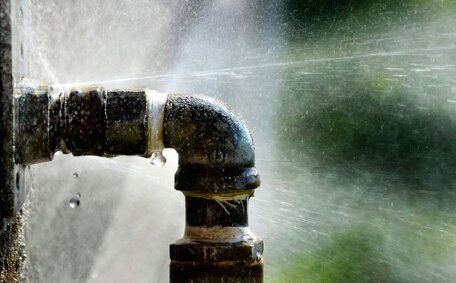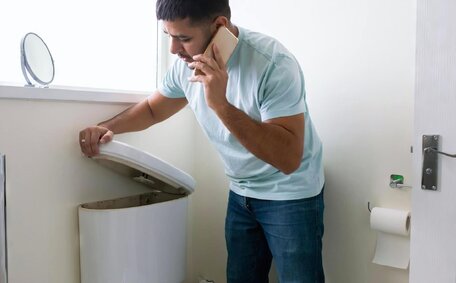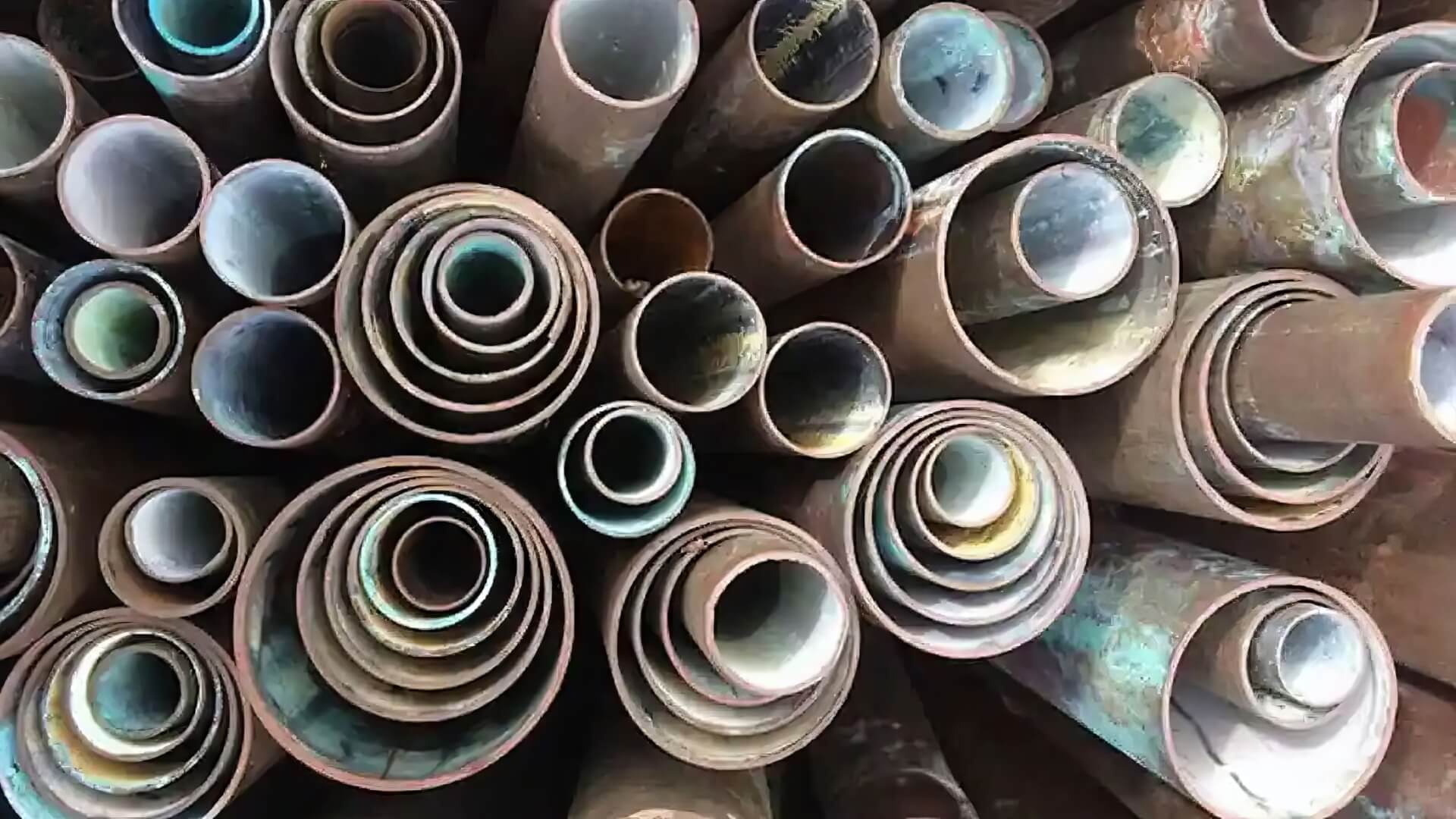
10 Signs Your Hot Water Heater Will Fail
If your water heater is old, leaking, rusty, noisy, not heating water properly or has low pressure, it could fail soon. Get your hot water system inspected today.
Read MoreUnderstanding the different types of water supply pipes and their lifespans is crucial for your house’s plumbing system. Your home’s plumbing may include materials like copper, PVC, cast iron, and galvanised steel, chosen for their durability.
Knowing the type and expected lifespan of your home’s plumbing pipes is essential for anticipating maintenance needs and addressing issues swiftly.
One frequently asked question is - when should plumbing pipes be replaced? While there’s no uniform answer, understanding the typical life expectancy of pipes can guide homeowners.
Several key factors influence a pipe’s lifespan, including its material, age, environmental exposure, water composition, and pressure.
This article provides an overview of common pipe types, their typical lifespans, and tips for identifying when replacements might be needed. This knowledge, which can help you make informed decisions, is central to maintaining and improving your home’s essential plumbing system over time.
When it comes to the pipes inside your home, there are several common types you’re likely to encounter:
Copper, prevalent in Australian homes, is a durable option for water supply pipes serving sinks, tubs, and appliances. They are long-lasting, corrosion resistant pipes compatible with hot cold water systems.
ABS pipes, akin to PVC or CPVC, are cost-effective choices often used for draining water and cold water supply in home plumbing systems. They don’t transmit heat well, yet they play a vital role in sustaining your water supply.
PEX (cross-linked polyethylene) is a flexible plastic piping, often used water supply lines in modern plumbing systems. It’s easy to install around corners and withstands temperature changes well.
Cast iron your sewer line, integral to your home’s sewer system, were very commonly installed in older homes. Although cast iron is durable, it’s prone to rust, which may shorten its lifespan.
Stainless steel sinks pipes, which had a zinc coating, pipes usually with such protection were also once very popular, though they are being replaced today. Cast iron galvanized steel pipes in your home can last at least a few decades but corrode over time, restricting water flow and requiring replacement.
Copper pipes are renowned for their durability, outlasting most other materials in residential plumbing. Their lifespan, which can extend beyond 50 years, varies depending on factors such as water composition.
Copper tank water heaters can last between 50-70 years in most homes before they need to be replaced. Some well-maintained copper water lines have even been known to can last up 100 years.
Copper lines are highly valued for their strength and resistance to corrosion. Despite higher initial costs, their extended lifespan justifies the investment through decades of dependable service.
To keep copper pipes in good health, be sure to have a plumber inspect them periodically to check for pinholes or corrosion damage. We recommend doing this every 5 years.
Catching minor leaks early in fixtures like hot water heater last allows for spot repairs and prevents major pipe failures down the road. With regular maintenance and a keep eye on any issues, your copper plumbing should provide many years of leak-free water delivery.
PVC pipes have become a common type in modern types plumbing pipes systems thanks to their durability and low cost. With proper maintenance, PVC pipes have an extensive, theoretically indefinite lifespan.
Under optimal conditions, PVC pipes can last upwards of 15 to 100 years. Many PVC pipes in Australian homes last between 50 to 70 years before replacement, with their practical lifespan hinging on environmental conditions and maintenance.
PVC’s lightweight and non-corrosive properties simplify installation for plumbers. Factors such as UV sun exposure, high water pressure, hard water buildup, and temperature fluctuations can shorten the lifespan of your pipes.
Insulating pipes, installing pressure regulating valves, and regular drain cleanings can maximise the lifespan of PVC pipes. Small investments like these can help your pipes last up to 100 years or beyond.
PEX is a top choice for cross-linked polyethylene piping in contemporary plumbing systems due to its durability, with a potential lifespan of at least 50 years. PEX pipes, comparable to copper in longevity, generally indicate replacement only when damaged.
We generally see PEX pipes last 50-70 years under typical household conditions before needing replacement. The flexible plastic material should replaced less often as it can easily withstand temperature and pressure fluctuations well. And its ability to bend can also make retrofitting PEX pipes into older homes much simpler.
To maximise lifespan, make sure PEX pipes are shielded from UV light exposure and extreme heat sources. Annual plumbing inspections can catch potential leaks early too. Overall, PEX offers a pipe solution that can serve the plumbing needs of most homes for many decades when installed correctly.
Cast iron pipes, which can last more than 50 years, were commonly installed in older homes, particularly for waste and drainage lines. With proper upkeep, cast iron pipes can last from 50 up to 100 years. However, when your pipes are prone to rust and corrosion over time, it shortens their lifespan.
Cast iron pipes often require full replacement after around 50 years. Signs such as visible rust, waterborne flakes, slow drainage, clogs, and leaks typically suggest the need for replacement.
While replacing cast iron plumbing may be costly upfront, it can help avoid more significant repairs later. We recommend having your pipes inspected every 2-3 years to monitor condition. This allows you to catch issues early and replace specific sections rather than the entire system if possible.
Though durable, the susceptibility of cast iron to rust could decrease its capacity to last at least 50 years, prompting a switch to PEX or copper for improved longevity. Nonetheless, meticulous maintenance can extend its service life significantly before full replacement is needed.
Once prevalent in older properties, galvanised steel pipes are known for their shorter lifespans and associated health risks, often needing replacement due to corrosion after about 20 years.
Over time, the protective zinc coating on galvanised steel pipes can wear away, exposing the underlying steel to corrosion. Corrosion can cause dangerous rust flakes and flow restrictions, indicating the need for system-wide pipe replacement.
Ensuring water safety involves addressing corrosion in galvanised steel pipes to prevent lead and toxins from leaching into the supply. For this one most important reason, we always recommend that any existing lead pipes or galvanised steel plumbing in your home be fully upgraded.
Replacing galvanised pipes with PEX or copper alternatives removes the contamination risk and gives you upgraded pipes that should last 50-70+ years under typical conditions.
There are several key factors that can shorten or extend the lifespan of your home’s plumbing pipes:
Hard water, abundant in minerals, and other contaminants can hasten pipe degradation through accelerated wear and corrosion. Implementing water softeners and filters can enhance water quality and prolong pipe life.
Leakages, floods, or backflows introducing chemicals such as chlorine can cause premature corrosion damage. Preventing these contaminations is key to maintaining pipe integrity.
Significant water pressure surges, typically from pump failures, can stress pipes. Fitting pressure relief valves is a preventative measure that contributes to a more enduring pipe lifespan.
Extreme temperature shifts, like very hot water flowing through cold pipes, can accelerate wear on pipes, which usually requires attention to prevent issues. Insulating pipes helps them handle temperature changes better.
Diligent maintenance is crucial for extending the life of your plumbing pipes. Regular yearly inspections by a licensed plumber allow for the early detection and resolution of potential pipe issues.
It’s important to understand that older pipes do not necessarily require replacement just because of their age; the actual condition and projected lifespan of the pipes are more dependable indicators for when to replace them.
We often see homeowners replace perfectly functional 50-year-old copper pipes because they assumed lifespan estimates dictated replacements. Meanwhile, 10-year-old steel pipes show severe corrosion indicating imminent failure.
Rather than rely solely on guides for average material lifespans, the actual condition of your pipes is a better indicator of their health. Notice any of these signs of pipe wear:
Our licensed technicians perform yearly plumbing inspections to assess your pipes’ condition, advising on when replacements are warranted, thus avoiding premature upgrades and ensuring you are informed about the true state of your pipes.
Don’t simply count years - inspecting actual pipe condition is the wisest way to maximise plumbing lifespan in your home.
Proper installation of plumbing pipes by licensed professionals is vital to realising their maximum lifespan. Our skilled plumbers meticulously ensure accurate sizing, placement, and connection to prevent leaks and pressure-related problems.
Regular maintenance, including for garbage disposals, is essential. Annual plumbing inspections by our technicians can identify early signs of corrosion, clogs, or wear, making it possible to address them with minor repairs rather than extensive replacements.
Basic pipe care you can perform includes checking for leaks, insulating your water heater pipes in unheated areas, installing sediment filters, and refraining from pouring harsh chemicals down drains. Keeping corrosive contaminants out of pipes is crucial.
With maintenance done right, it’s important to focus on plumbing components such as your washing machine, and prompt repairs when necessary, you can keep your pipes in reliable service for decades past initial lifespan estimates. Don’t wait for failures - proper pipe care pays off exponentially in longevity and avoided major headaches.
There are a few key signs that may indicate your plumbing pipes need to be replaced:
Catching the out sight out signs above early allows for spot repairs in some cases. But recurring issues usually mean whole pipelines need upgrading. Contact our team if you suspect about your home’s pipes need help - we’re happy to inspect and advise more about the situation!
Calling in a professional plumber is highly recommended when you notice signs of clay pipes wear, damage or impending failure in your home’s plumbing system. Persistent issues like frequent clogs, leaks, low water pressure or rust in water point to pipes in need of assessment and likely replacement.
Attempting DIY fixes for damaged pipes often leads to bigger problems down the road. Our licenced plumbers have the expertise to properly inspect your pipes, accurately identify issues, and repair or replace worn sections as needed. We also handle large scale re-piping if your entire system needs upgrading after 50+ years of use.
At Mortdale Plumbing, we offer a complete array of residential and commercial plumbing services including:
Addressing issues like leaks immediately is essential to avert costly emergencies, including floods and mould from minor neglected leaks. Reach out to our team at the first hint of trouble for timely evaluations and fixes, ensuring your home’s plumbing remains secure for the long-term.
For all your end their plumbing needs, the team at Mortdale Plumbing stands ready to help. As licenced professionals serving Sydney for over 25 years, we have the experience to assess any residential or commercial plumbing issue and restore proper function.
If you suspect your pipes need replacing or have concerns about drainage backups, low pressure, leaks, or other problems, we are here to help. Schedule an inspection or repair appointment with us today.
Our team of fully certified plumbers offers a comprehensive range of services, including:
Act promptly on minor issues to prevent them from escalating into major problems. It’s important to get ahead of problems to ensure your plumbing lasts longer. Call Mortdale Plumbing today - we have the solutions to keep your water flowing for years to come.
If your water heater is old, leaking, rusty, noisy, not heating water properly or has low pressure, it could fail soon. Get your hot water system inspected today.
Read MoreIf you have plumbing fixtures that are over 10 years old or showing signs of wear like leaks and cracks, it’s important to replace them to prevent more costly water damage in the future. Replacing worn fixtures improves water efficiency.
Read MorePipe relining is a trenchless method that renews pipes from the inside out. It involves draining, drying and scrubbing the pipe interiors before applying materials like silicone, PMMA or epoxy resins to create a resilient, soft, temporary liner inside the existing pipes.
Read MoreMortdale, 2223 NSW
We will call back as soon as possible.




